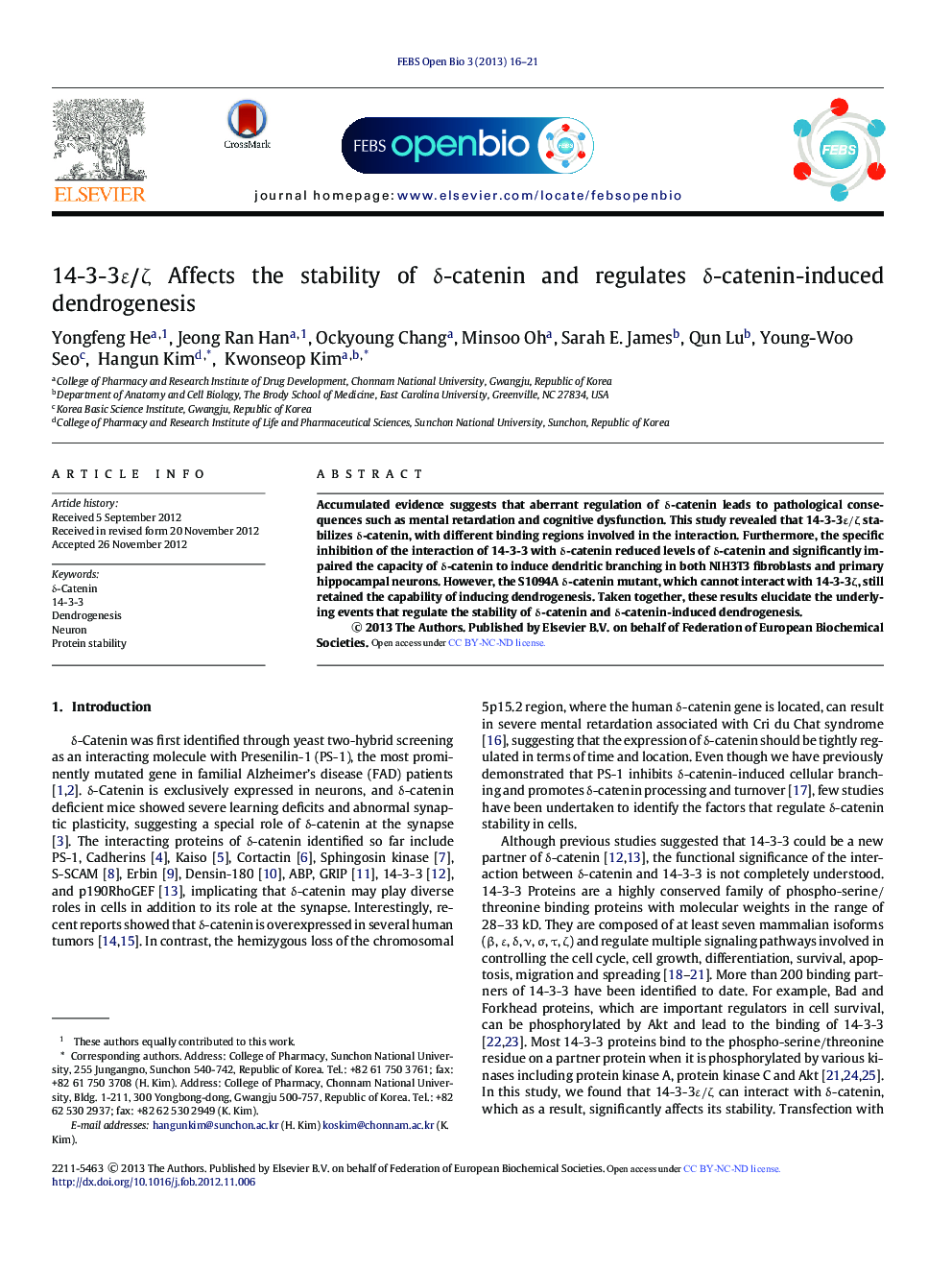| Article ID | Journal | Published Year | Pages | File Type |
|---|---|---|---|---|
| 1981756 | FEBS Open Bio | 2013 | 6 Pages |
Accumulated evidence suggests that aberrant regulation of δ-catenin leads to pathological consequences such as mental retardation and cognitive dysfunction. This study revealed that 14-3-3ɛ/ζ stabilizes δ-catenin, with different binding regions involved in the interaction. Furthermore, the specific inhibition of the interaction of 14-3-3 with δ-catenin reduced levels of δ-catenin and significantly impaired the capacity of δ-catenin to induce dendritic branching in both NIH3T3 fibroblasts and primary hippocampal neurons. However, the S1094A δ-catenin mutant, which cannot interact with 14-3-3ζ, still retained the capability of inducing dendrogenesis. Taken together, these results elucidate the underlying events that regulate the stability of δ-catenin and δ-catenin-induced dendrogenesis.
▸ Aberrant regulation of δ-catenin in neurons leads to several pathological consequences. 14-3-3ɛ/ζ Interacts with δ-catenin, increasing its stability. ▸ This interaction significantly affects the induction of dendritic branches in NIH 3T3 fibroblasts. ▸ A similar effect was seen in primary hippocampal neurons.
